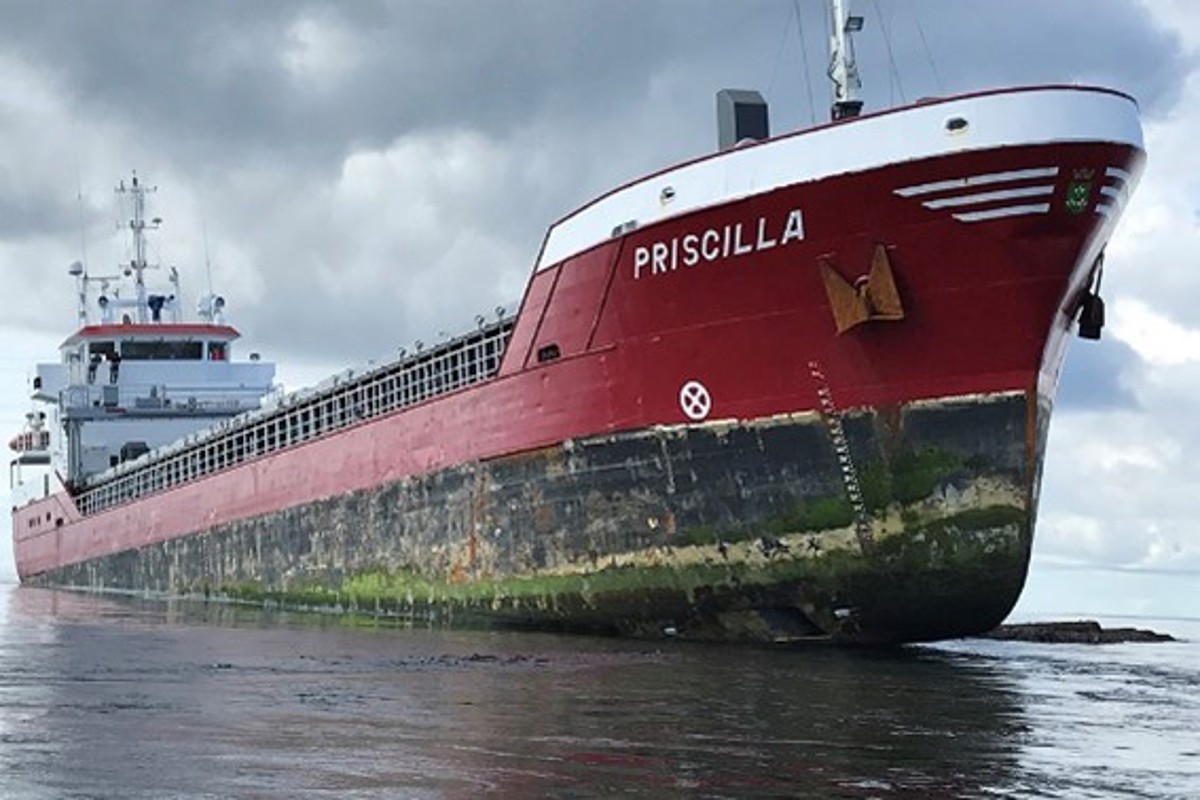Case study: Lone watchkeeping grounding at night
- Safety Flash
- Published on 30 March 2021
- Generated on 28 February 2026
- IMCA SF 09/21
- 2 minute read
Jump to:
As part of its BSafe campaign, Britannia P&I Club describes a case where a vessel ran aground at night.
What happened?
The primary factor contributing to the grounding of the ship was the officer of the watch’s failure to effectively monitor the ship’s progress for about two hours.
The incident involved the general cargo vessel Priscilla and it occurred in July 2018. The UK Marine Accident Investigation Branch (MAIB) report on it can be found here.
The Britannia P&I Club has created a handy case study on the incident, including a summary, presentation commentary and lessons learned.

What went wrong?
The ship ran aground because it drifted to the south of the planned track while on autopilot.
The Officer of the Watch did not monitor the ship’s progress for about two hours while sitting in the bridge chair watching videos on his mobile phone.
Lessons learned
- Pay attention to what is happening around you!!
- Monitoring vessel progress along the planned passage is a vital component of safe navigation, and the officer of the watch should not become distracted from this responsibility.
- Reducing to a sole lookout should be properly risk assessed.
- Electronic navigation aids should always be set up to aid the officer of the watch by giving warning of danger ahead.
Members may wish to refer to:
IMCA Safety Flashes summarise key safety matters and incidents, allowing lessons to be more easily learnt for the benefit of the entire offshore industry.
The effectiveness of the IMCA Safety Flash system depends on the industry sharing information and so avoiding repeat incidents. Incidents are classified according to IOGP's Life Saving Rules.
All information is anonymised or sanitised, as appropriate, and warnings for graphic content included where possible.
IMCA makes every effort to ensure both the accuracy and reliability of the information shared, but is not be liable for any guidance and/or recommendation and/or statement herein contained.
The information contained in this document does not fulfil or replace any individual's or Member's legal, regulatory or other duties or obligations in respect of their operations. Individuals and Members remain solely responsible for the safe, lawful and proper conduct of their operations.
Share your safety incidents with IMCA online. Sign-up to receive Safety Flashes straight to your email.